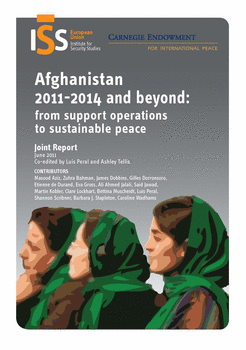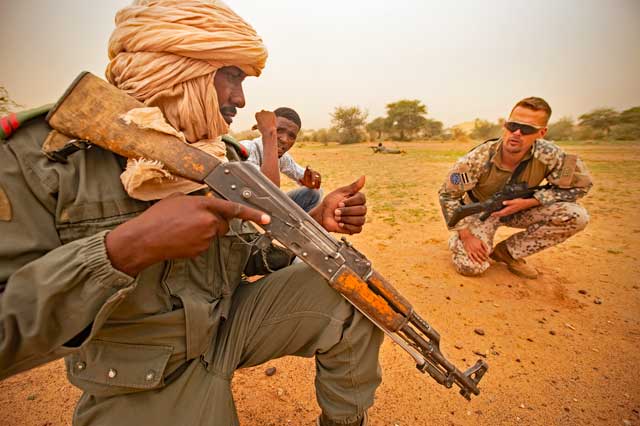Engagement in Afghanistan. What does the European Parliament say: Nothing?
(BRUSSELS2) While everyone is hanging on to the slightest frown in Washington, Obama having to announce his new military strategy in Afghanistan, the Europeans remain strangely silent. Condemned to be the auxiliaries of the American forces. If this position could be justified a few years ago, today with the entry into force of the Treaty of Lisbon. The European Parliament, which is the only legitimate body from a democratic point of view, must quickly take up the matter and open the debate.
A solid action plan.
Of course, there was the position affirmed at the last Council of Foreign Ministers, with a EU action plan for Afghanistan and Pakistan. However, this is to the Action Plan what chicory is to coffee, an ersatz. Many aspects are forgotten, especially the military aspect. And the European commitment to police training remains both limited and difficult (read Eupol Afghanistan: we are progressing, slowly, too slowly...). Even the organization of civil aid remains fragmented. This action plan pales in comparison to American General McChrystal's plan. The plan of the American general - which should be reread with some attention (1) - is in a certain way more complete and ambitious, not only on the military level. At the civilian level as well, since it provides for the doubling of the military chain of command by a civilian chain of command throughout the country. In Kabul and in each province, a "civilian commander" would be appointed with the function of coordinating all the civilian means deployed in the province and thus being able to "dialogue" with the military commander. This plan also provides for a "surge" in terms of communication to respond quickly and effectively to the Taliban's attempts at disinformation. Rather than communication or an action plan, what seems to be lacking above all at European level is debate.
Why is a debate necessary?
It therefore seems totally incongruous that, apart from a few countries (Germany in particular), debate in democratic representations is not the rule. It also seems totally abnormal that no debate has been organized at European level. Because Afghanistan (and Pakistan) is an eminently European subject in which all the States are involved and for which the budget, both national and Community, is subject to contribution. With "contrasting" results (to be nice...). For me, the European Parliament, which is the only European body elected by direct universal suffrage (which is neither the NATO parliamentary assembly, nor the WEU assembly, nor the Europe), must address this issue. This intervention is all the more justified since the intervention in Afghanistan is a long-term one, since it deeply involves both the lives of Europeans and numerous military resources - which are therefore no longer available in other of intervention - and that it requires significant financial and budgetary means - all the more difficult to maintain in these times of budgetary restriction. From an economic point of view alone - with regard in particular to compliance with the Maastricht budgetary stability criteria - this debate should be necessary. When we look at the dimension of development, democracy, foreign policy, stability of the Asian region, terrorism... its necessity appears even more primordial.
A committee of inquiry in the European Parliament?
The entry into force of the Lisbon Treaty, which brings to the fore the need for better coordination of foreign policies, imposes this debate today. Especially since public opinion in all European countries is increasingly skeptical about this intervention, and is awaiting the expression of various opinions... We are not going to wait for the American Congress to have debated all the options considered. to fix our position. For me, the European Parliament must open the debate, and quickly, why not in the form of a commission of inquiry... This would make it possible to consider all aspects of the question - the objective of the presence on the spot (hunting to terrorism, stabilization of the area, development, democratic model, etc.), the means implemented, the budgets which are allocated - in a calm, thoughtful and open manner.
(Nicolas Gros-Verheyde)
(1) Whose project had been made public on the Washington post - download

